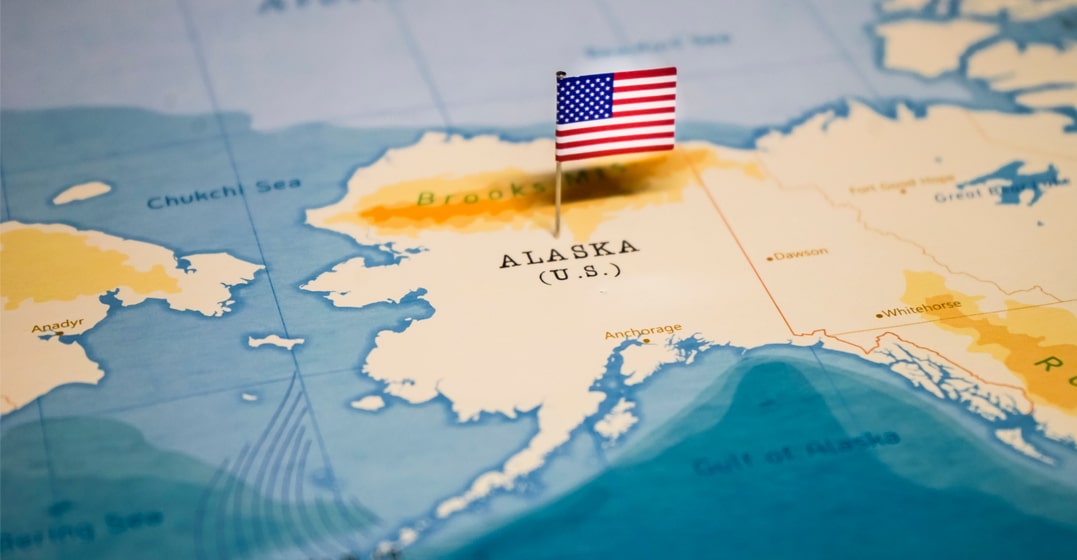Updated on December 13, 2024

Languages spoken in Alaska: Everything you need to know

What do Alaskans speak?
That’s a great question—without one simple response. If you were expecting the answer to be “Alaskan,” you’re in for a surprise! In fact, among the population of 736,990 in the US state of Alaska, there are many languages spoken—close to two dozen.
In this post, we’ll cover everything you’ve been wondering about the languages spoken in Alaska, including how many languages there are, which are the most common and how many people speak them. We’ll also go through some Alaskan phrases.
Read on to learn more about the diverse languages of Alaska!
In addition to English (one of the state’s official languages), Alaska is home to at least 20 distinct official native languages: Ahtna, Unangam Tunuu / Aleut, Alutiiq / Sugpiaq, Dena’ina, Deg Xinag, Eyak, Gwich’in, Haida, Han, Holikachuk, Inupiaq, Koyukon, Tanana, Tanacross, Tlingit, Tsimshian, Upper Kuskokwim, Upper Tanana, Central Alaskan Yup’ik and Siberian Yupik.
On top of the official languages, other languages are sprinkled throughout the state, including Spanish, Tagalog, Russian and Hawaiian.
Although there are more than 20 languages in the state of Alaska, they’re not all spoken equally. By far, English is the language that’s mostly spoken in Alaska, with about 84% of the population saying English is their primary language.
So, how many people speak each language other than English? Here’s a breakdown of the most commonly spoken languages:
As you can see, Alaska’s native languages aren’t spoken by many people. Some dialects, like the Athabascan language Holikachuk, have no more than twelve speakers. In answer to this, there’s been an ongoing focus on the creation of resources, programs and guidelines to help protect and strengthen these endangered heritage languages.
This question isn’t as straightforward to answer as you might think. With the Alaskan population speaking the mix of languages we described above, there’s no such thing as one “Alaskan” accent.
Having said that, there are a few factors that may contribute to what you could identify as a distinctly Alaskan way of speaking. First of all, many Alaskan residents originally came from the Pacific Northwest (the northwestern part of the US and the southwestern part of Canada). As a result, you might find that some Alaskan speech borrows from the sounds in that region. Some may even have speech patterns that sound almost stereotypically Canadian.
Many residents of Alaska also come from the Midwestern United States, so that regional accent probably influences Alaskan speech as well. Of course, native languages are also an influence, but mostly only in remote areas.
Ready to learn some Alaskan vocabulary? Let’s have a look at some words and phrases that come from some of Alaska’s native languages.
| Language | Word/phrase | Translation |
| Central Alaskan Yup’ik | Cama-i | Hello (Good to see you) |
| Central Alaskan Yup’ik | Piura | Goodbye |
| Dena’ina | Nda’ich’ q’u t’int’a? | How are you? |
| Haida | Háw’aa | Thank you |
| Han | Nijaa | Our friends |
| Inupiaq | Kiña ilviñ? | What’s your name? |
| Siberian Yup’ik | Quyanaghhalek tagilusi | Welcome (Thank you for coming) |
| Tlingit | tsu yéi ikḵwasateen | See you later |
The native languages of Alaska aren’t widespread, but with more than 20 languages to choose from, there’s a lot to learn. If you’d like to step out of the ordinary, why not try learning one of the languages spoken in Alaska?
Gganaa’ (Good luck, friend)!